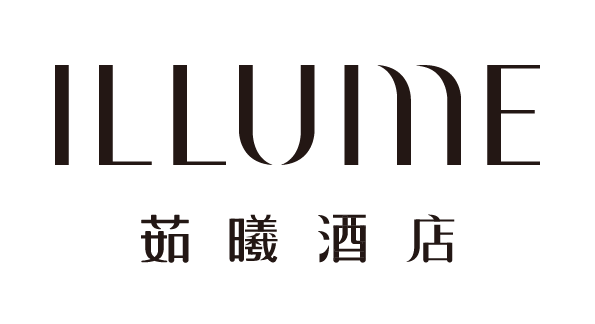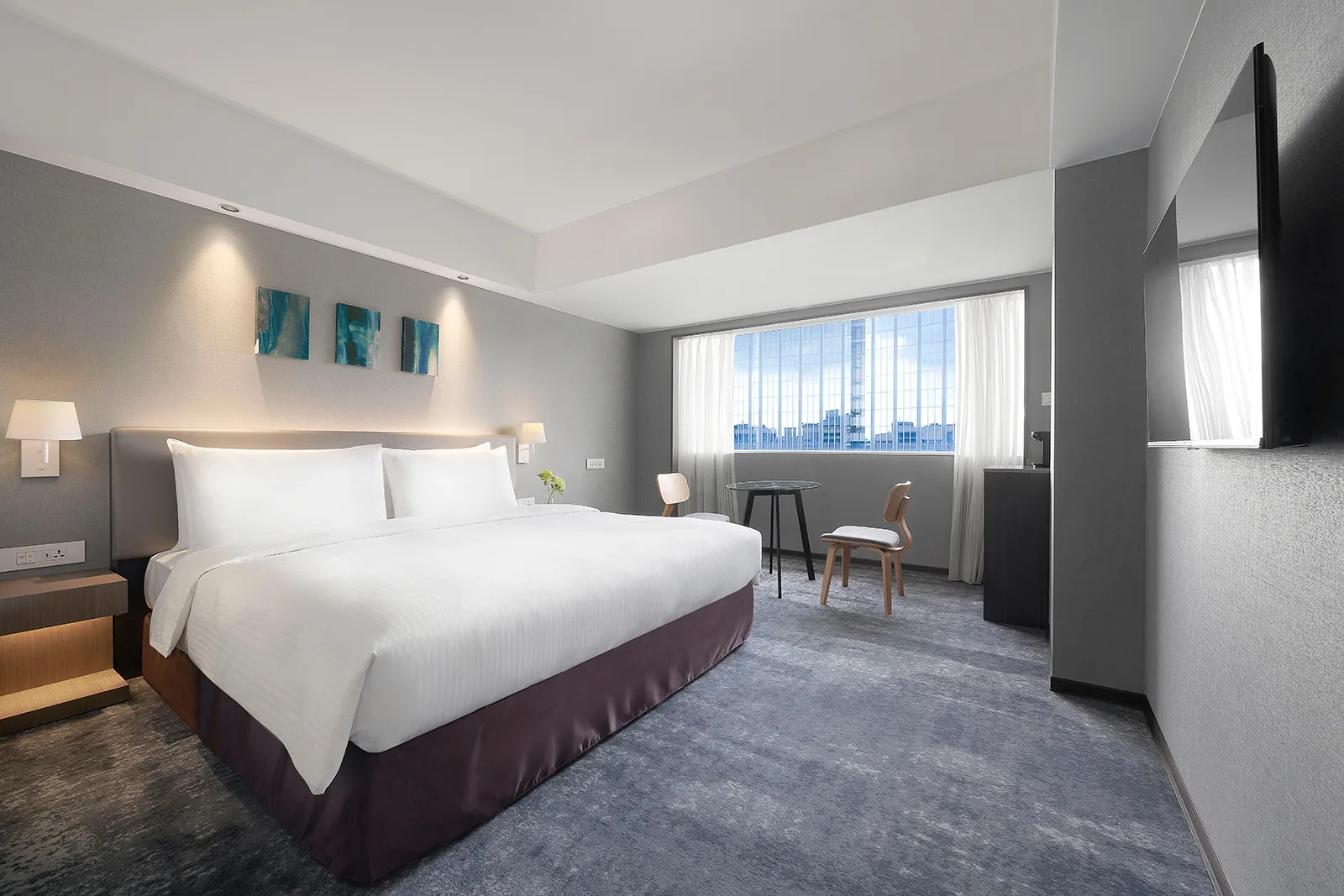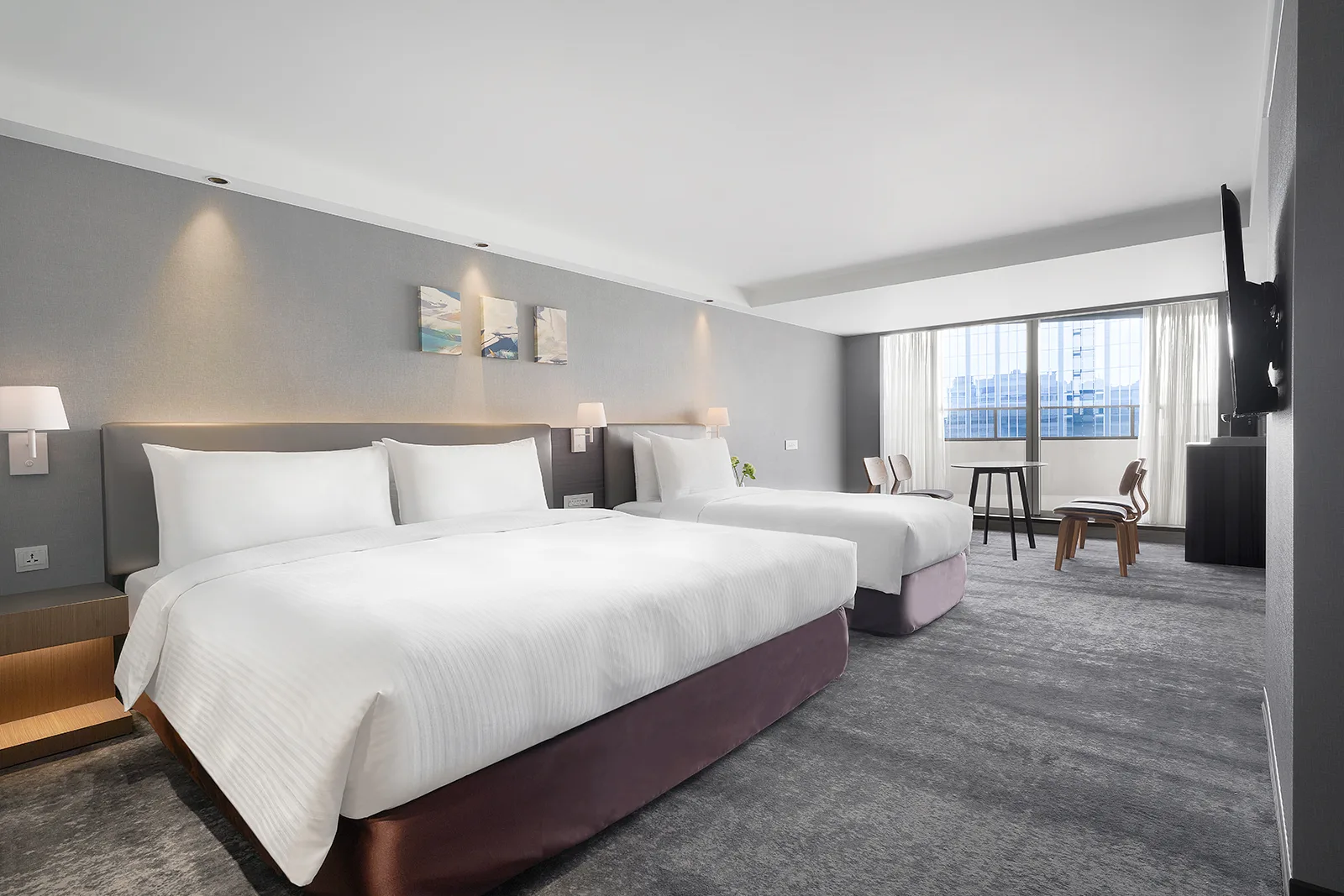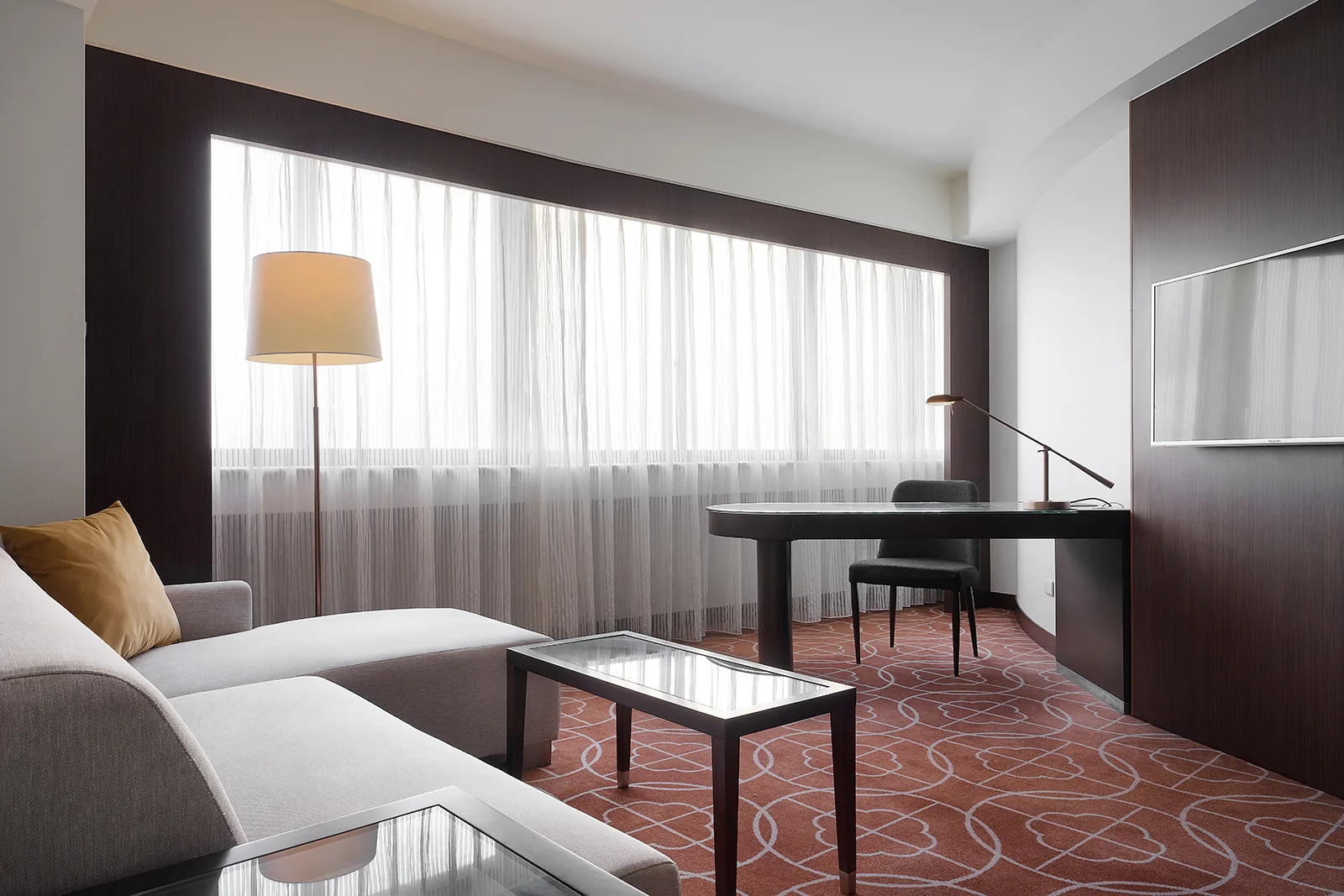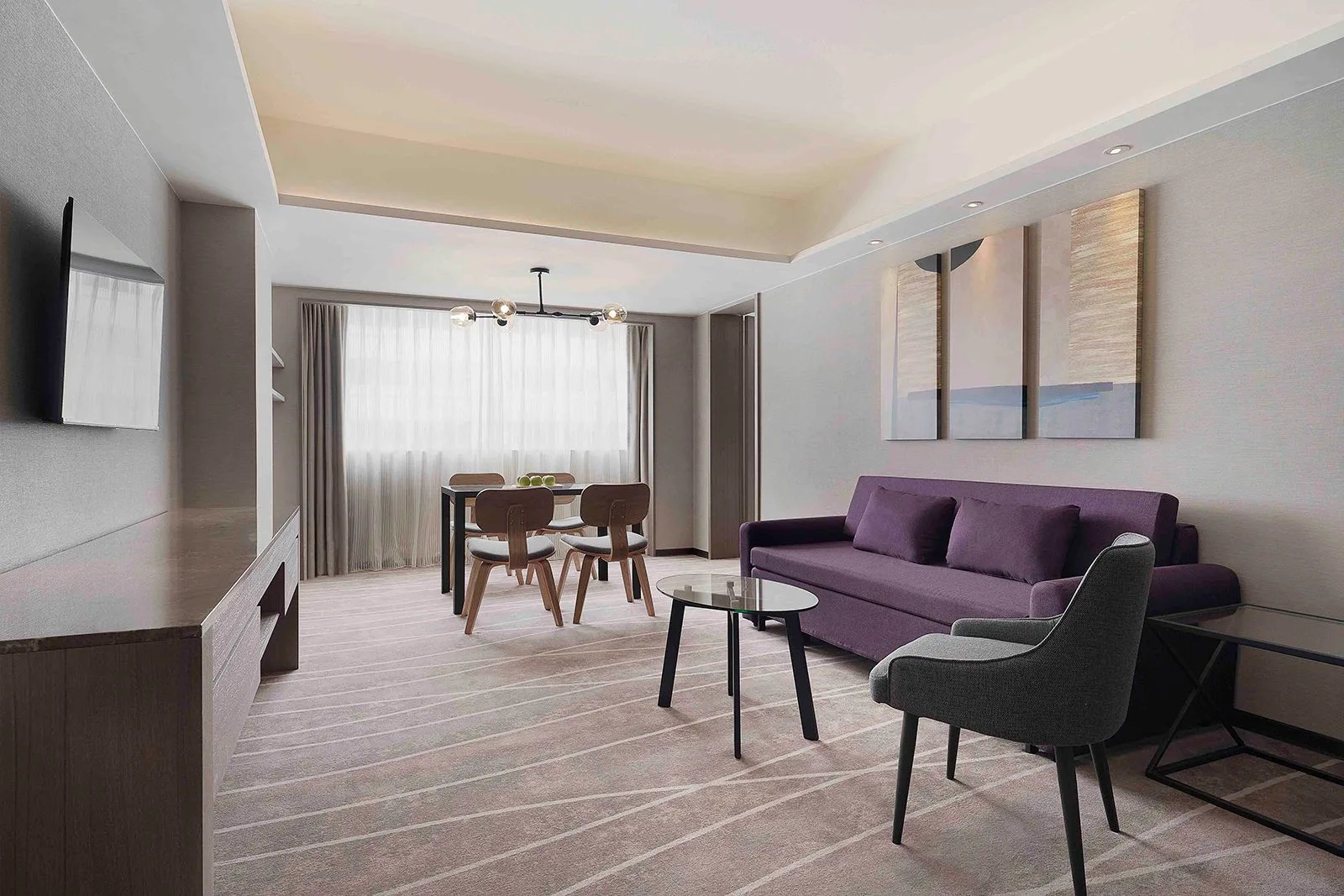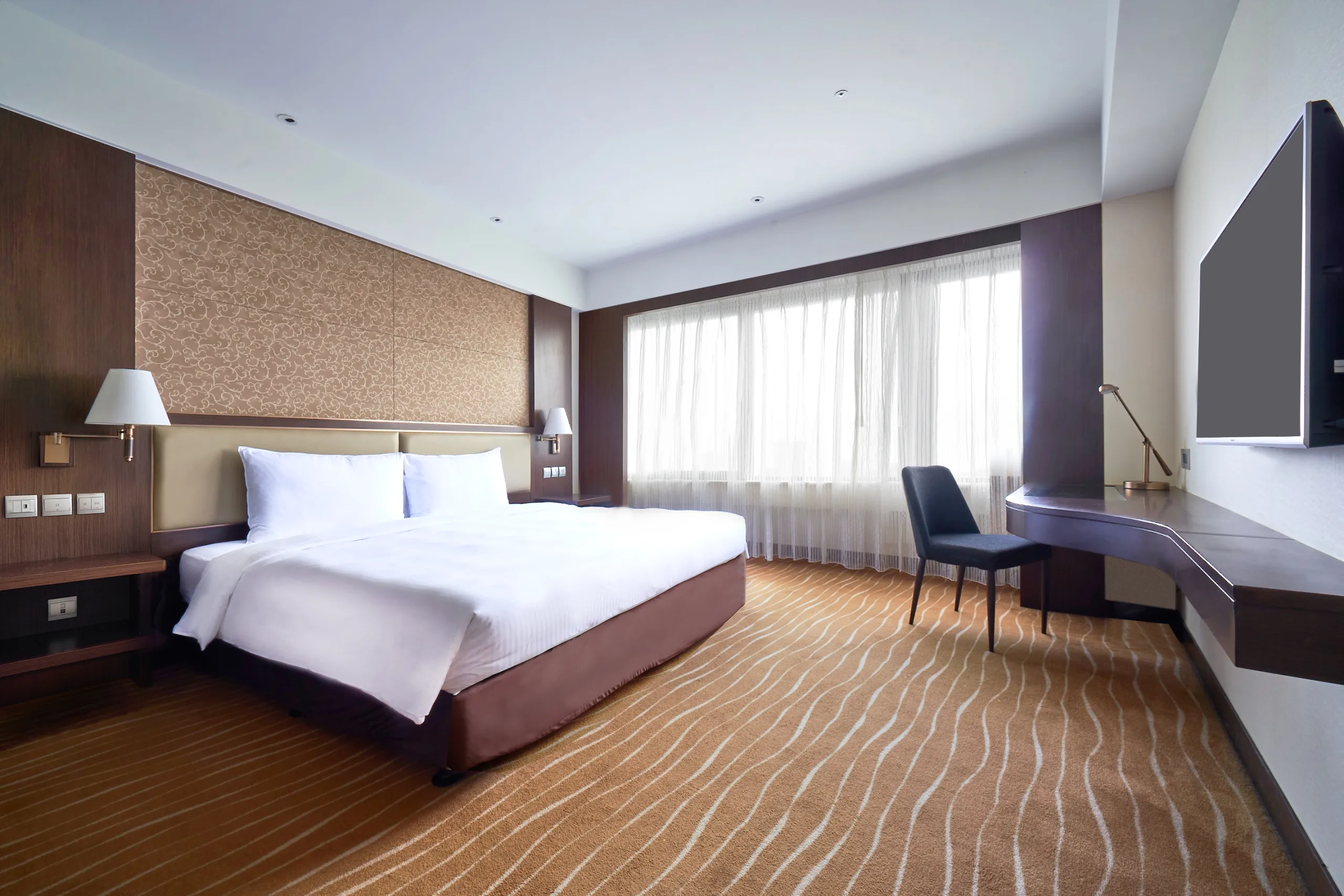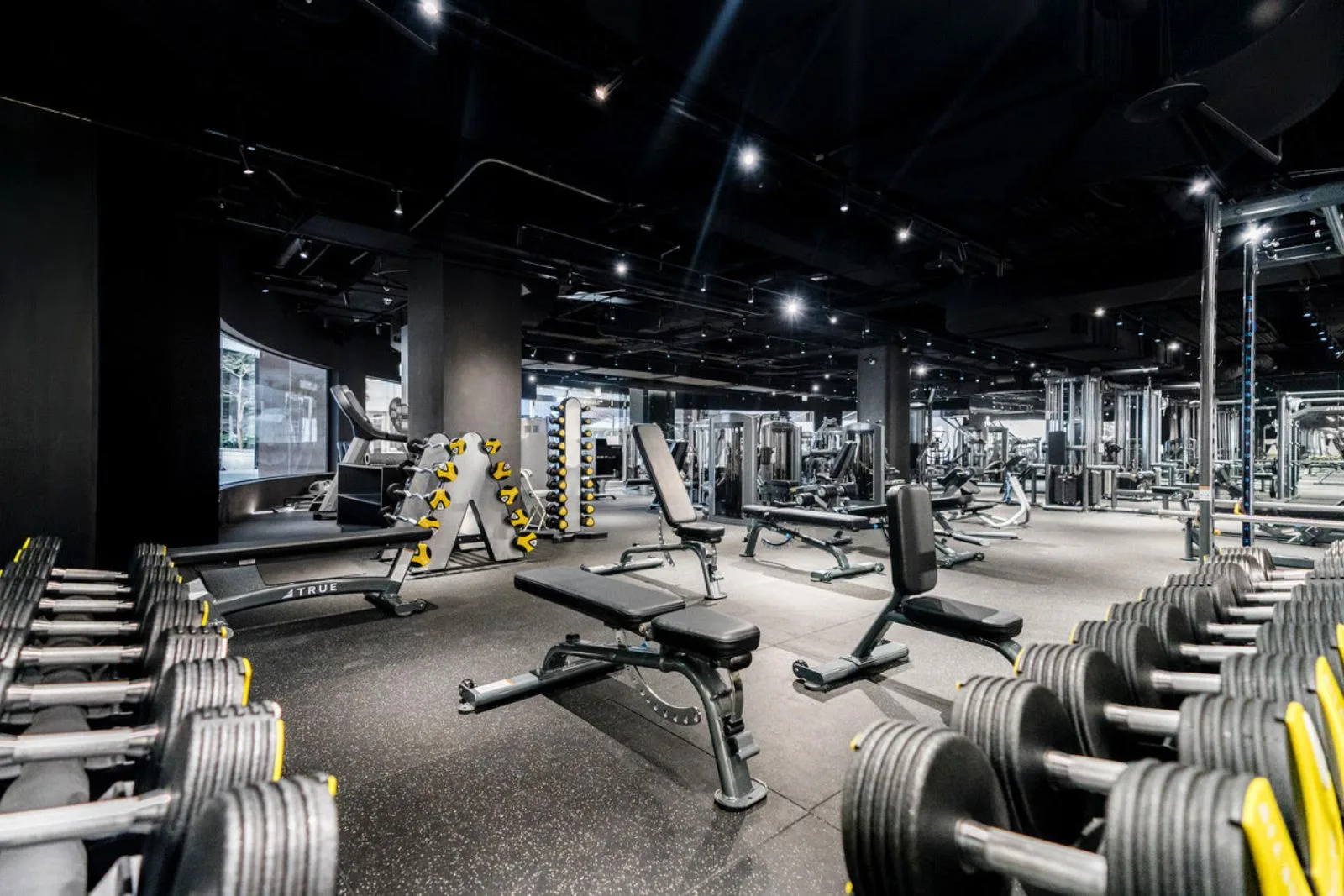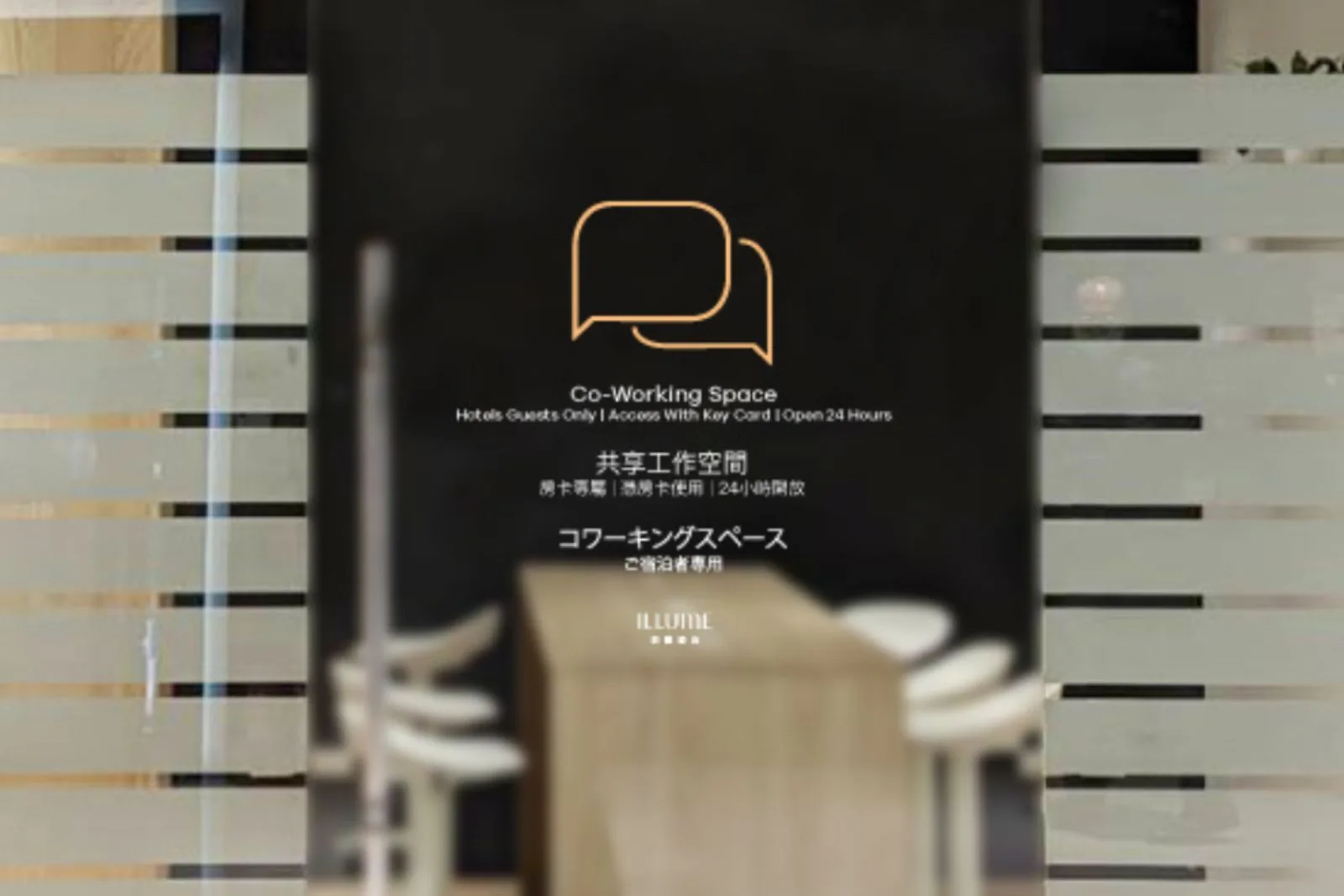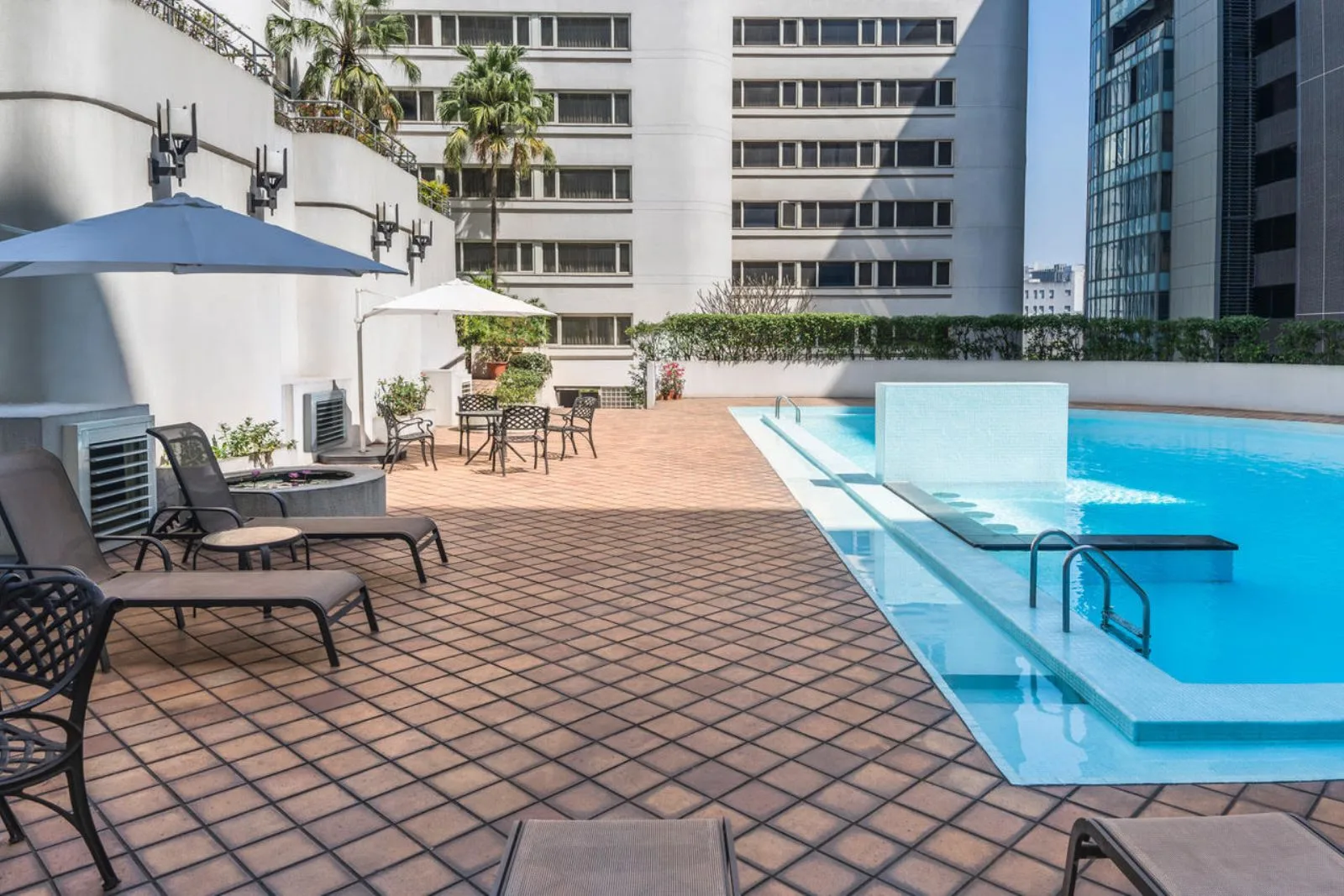
타이베이 중심에서 머무르세요

맛의 세계에 빠져보세요!
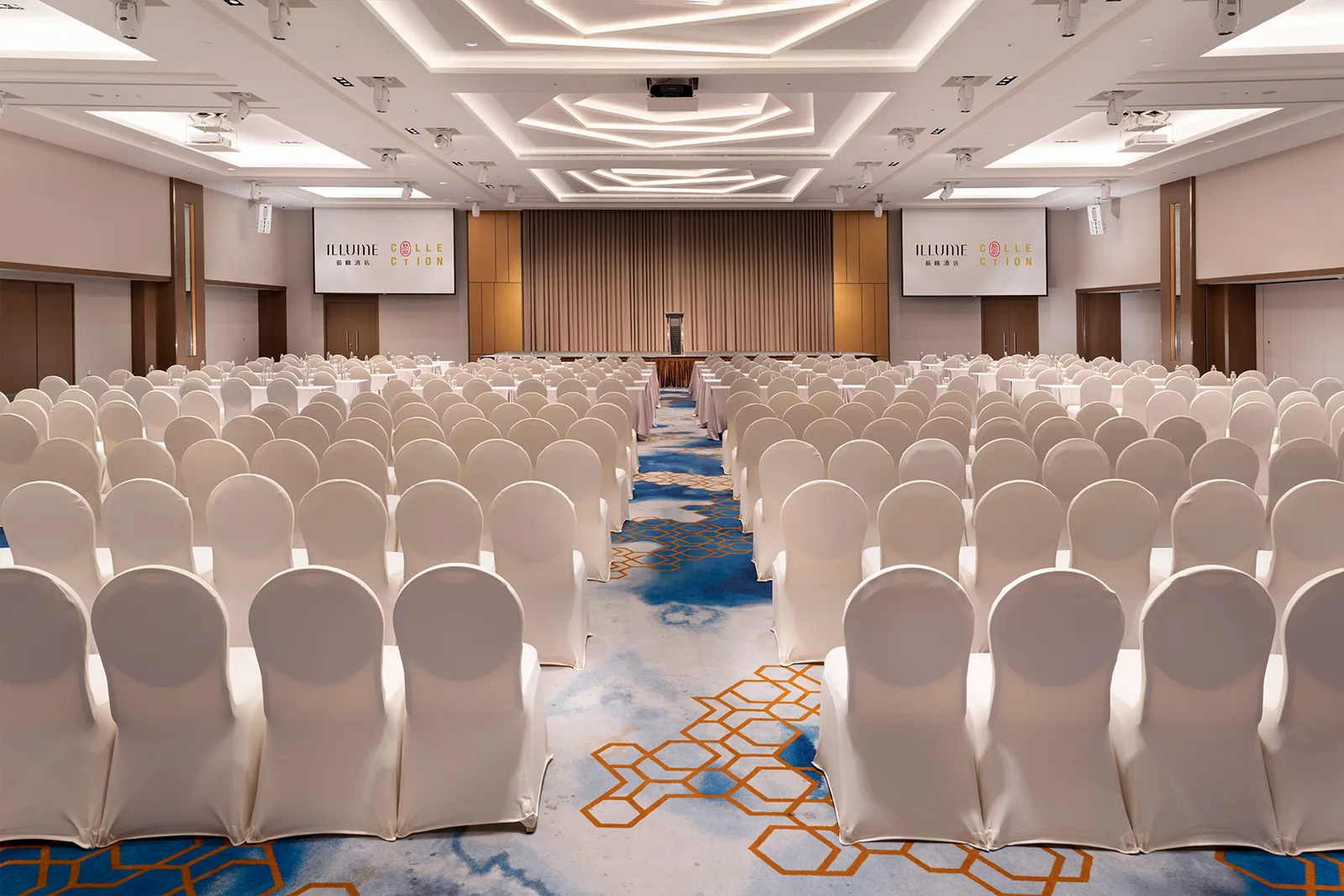
큰 꿈을 꾸고 더 큰 것을 창조하세요
호텔 주소: 대만 타이베이시 송산구 둔화북로 100번지
飯店地址:台北市松山區敦化北路 100 號
일루메 타이베이 –
당신의 완벽한 타이베이 호텔 스테이!
최고의 타이베이 여행을 시작하고 싶으신가요? 일루메 타이베이(ILLUME TAIPEI) 는 도심 한가운데 위치해 있어 비즈니스, 여행, 휴식 어느 목적에도 완벽한 호텔입니다. 세련된 객실, 최고급 시설, 그리고 최상의 편리함을 경험해 보세요!
일루메 타이베이를 선택해야 하는 이유
Easy access to top attractions & metro stations
당신의 숙박을 더욱 즐겁고 편안하게
모던하고 세련된 객실로 완벽한 휴식 제공
언제 어디서나 편리한 인터넷 이용
다양한 현지 및 글로벌 요리 제공
언제든 도움을 받을 수 있는 고객 서비스
회의, 연회 및 이벤트에 적합한 공간 제공
지속 가능한 숙박을 위한 친환경 이니셔티브 운영
선착순 이용 가능
MFT 및 MFR 표준 준수
객실 및 스위트룸
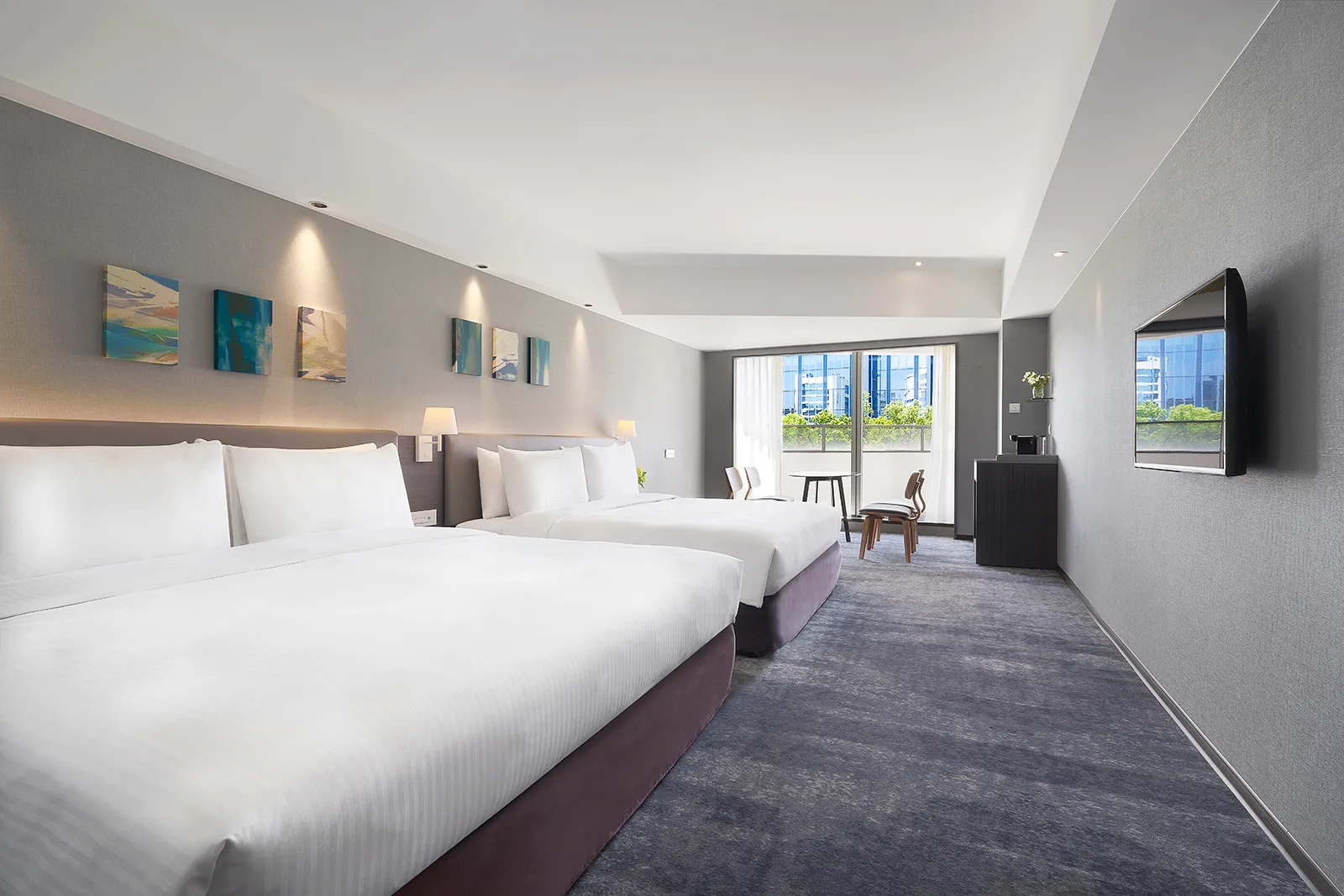
프리미어 패밀리 룸
새롭게 디자인된 패밀리 룸은 최대 4명의 손님을 수용할 수 있으며, 편안함과 넓은 공간을 제공합니다. 2대의 킹 사이즈 침대 또는 1대의 킹 사이즈 침대와 2대의 싱글 침대 구성을 선택할 수 있으며, 가족이나 친구와 함께하는 여행에 적합한 객실 타입입니다.

프리미어 스위트 룸
이 새롭게 디자인된 스위트룸에서 럭셔리함과 편안함을 느껴 보세요. 넓고 세련된 거실과 디자인이 독특한 침실에서 완벽한 휴식을 취할 수 있습니다. 도시의 고요한 분위기와 세심한 서비스를 즐겨 보세요.

이그제큐티브 스위트 룸
저희 이그제큐티브 스위트 룸에 오신 것을 환영합니다. 독립된 침실, 넓고 편안한 거실, 편리한 간이 주방이 있어 편안함과 실용성을 모두 갖추고 있습니다.
고급 시설로 여유롭게 즐기세요
편리한 교통 – 쉽고 빠르게 호텔에 도착하세요!
일루메 타이베이 는 대중교통과 잘 연결되어 있어 편리하고 스트레스 없는 이동이 가능합니다. 어떤 교통수단을 이용하든 일루메 타이베이 에 쉽게 도착할 수 있습니다!
- 타이베이 아레나역(G17) – 호텔 바로 앞!
- 난징푸싱역(G16/BR11) – 도보 7분 거리
난징둔화 교차로(타이베이 아레나): 호텔은 도보로 3분 이내 거리에 있습니다.
- 공항 익스프레스 열차를 타고 타이베이 메인역까지 이동 (약 35분), 이후 MRT로 환승.
- 호텔 리무진 서비스 – 메르세데스 벤츠 S-클래스로 품격 있게 도착 (약 40~50분).
진짜 투숙 경험에서 비롯된 신뢰할 수 있는 후기
단순한 별점보다 당신의 편안함과 마음을 소중히 여깁니다. 이곳은 단순한 숙소가 아닌, 몸과 마음을 위한 도심 속 오아시스입니다. 실제 투숙객들의 감동적인 이야기를 읽고, 안심하고 예약과 여행을 시작하세요.
특별 프로모션 – 더욱 특별한 타이베이 숙박 경험!
우리의 놀라운 할인 혜택을 활용하여 귀하의 숙박과 모임을 절대 잊을 수 없는 추억으로 만드십시오!

Lunar New Year Reunion Feast
Enjoy a warm and special moment of Lunar New Year Reunion Feast with your family at ILLUME TAIPEI. The five-star chef team of Palais de Chine Collection has planned a series of exquisite Chinese banquet and all-you-can-eat feasts to enrich the festival gatherings with a variety of wonderful dishes.

All – You – Can – Eat BBQ Feast
Sunny Buffet presents the “All – You – Can – Eat BBQ Feast”, featuring a curated selection of classic barbecue dishes from around the world. Enjoy a cross-border culinary journey without leaving the country.

Unforgettable End – of – Year Party
The best choice for a End – of – Year Party at ILLUME TAIPEI. Celebrate in our bright and spacious banquet halls with a lavish Chinese set menu, exquisitely prepared by the five-star chef team of Palais de Chine Collection.

타이베이 호텔 뷔페|일루메 타이베이 Sunny Buffet 【겨울 미식 그릴 시즌】 기간 한정
Looking for festive ideas for a “Taipei hotel buffet”? Located in Songshan District, Sunny Buffet at ILLUME TAIPEI is introducing the limited-time “Winter Grill & Gourmet Season,” featuring specialties such as garlic and black pepper diced beef, butter-grilled scallops, tandoori chicken, and Southeast Asian desserts like bubur cha-cha and mango sticky rice. From 10/1 to 12/31, this warm seasonal feast invites you to savor the richness of winter in ever-shifting light and shadow.

타이베이 호텔 크리스마스 축제: 일루메 타이베이 - 별빛 속 속삭임과 지속 가능성의 빛
Taipei Hotel Christmas Celebration is coming. ILLUME TAIPEI lights up the winter cityscape with “Starlit Whispers: Shining Sustainability,” continuing the rainbow art of Pride Month. From outdoor illuminations to lobby floral displays, feel the festive warmth and heartfelt care in the heart of Taipei.

올겨울 타이베이 숙소 & 여행 완벽 가이드
Discover Taipei’s ultimate Taipei hotel winter travel guide and hotel picks – from fun filled ice rinks to irresistible night market bites. Let the cozy charm of winter warm your wonderful journey.
호텔 정보 & 고객 서비스
Address & Contact
- Address:100, Dunhua N. Rd., Songshan District, Taipei City
- Phone:+886-2-2719-8399
- Front Desk:24-hour personalized service
- Check-In / Out:Check-In: 4:00 PM|Check-Out: 11:00 AM
Guest Services & Amenities
- Self-Service Check-In/Out Kiosks
- 컨시어지 서비스
- 수유실
- Mail Delivery Service
- Limousine Transfers (on request, additional charge)
Business & Work-Friendly Spaces
- 최신 설비를 갖춘 회의실
- 24-Hour Co-Working Space with flexible seating & Wi-Fi
Fitness & Wellness
- Fully equipped gym, sauna & steam room
- Outdoor swimming pool
- Yoga & relaxation spaces
Parking & Convenience
- Free on-site parking (first come, first served)
- Close to Taipei Arena, Taipei Dome, Taipei 101
- Shopping mall & entertainment venues nearby
주소 & 연락처
고객 서비스 & 편의 시설
비즈니스 & 워크스페이스
피트니스 & 웰니스 공간
주차 & 주변 편의시설
- 주소: 대만 타이페이 송산구 둔화 북로 100, 우편번호 105020
- 전화 번호 +886 2 2719 8399
- 24시간 프런트 데스크
- 체크인: 16:00|체크아웃: 11:00
- Self-Service Check In/Out Counter
- VISA, MasterCard, JCB, American Express, China Union Pay 이용 가능
- 무료 Wi-Fi
- 컨시어지 서비스
- 수유실
- 우편배달
- 리무진 서비스(유료)
- 최신 설비를 갖춘 회의실
- 24시간 코워킹 스페이스
- 피트니스 센터, 사우나 & 스팀룸
- 야외 수영장
- 요가 클래스 & 휴식 공간
- 시설 및 서비스 (선착순)
- 쇼핑몰 & 엔터테인먼트 시설 인근
- 타이페이 아레나
- Taipei Dome
- 台北101
